We have developed our strategy on four pillars representing the benchmark principles that inspire our work and our action plan in the definition of our Roadmap to 2030 which includes 26 sustainability objectives.
We ensure that waste and secondary products become resources by integrating them into cement production and by entering into partnerships with other industrial players and public authorities. We are at the forefront in the use of raw materials and alternative fuels from urban and industrial waste and by-products.
We adopt all the necessary measures and the most innovative technological solutions to minimize the impact of our business on the environment.
We attract and value talent and ensure a safe and motivating work environment for our people who are our most important resource. We continue the process of consolidating structures in 18 countries and 5 continents to increase the integration of human resources and strengthen the platform. All this to create a distinctive One Group Culture and be "Concretely safe".
We generate value for local communities listening to their needs and concerns and basing our relationships with them on transparency and accountability. Ours is a business of proximity: dialogue with institutions, communities and associations affected by plant operations is essential for the continuity and preservation of the business.
The four pillars inspired the definition of our roadmap to 2030 which includes 26 sustainability objectives. The 26 objectives cover all priority areas to minimize our impact on the environment, create a healthy, safe and inclusive work environment, respect human rights and create a constructive and transparent relationship with local communities and business partners.
We have aligned the 26 sustainability goals to the United Nations Sustainable Development Goals (SDGs):
-
Circular economy
UN SDGs 2030 Target Detailed description 2024 Results 

48% alternative fuel use for grey cement production by 2030 The Group target has individual goals for each plant producing grey cement. The overall Group target defined, which also has intermediate targets for 2025, has a final target date of 2030. In 2024, the use of alternative fuels increased to 34% (33% in 2023). 

14% alternative fuel use for white cement production by 2030 For white cement, CO₂ emissions will be reduced to 653 kg per ton of cement. The reduction will be achieved by replacing traditional fuels with fuels that have a lower emissions impact, in particular natural gas and other alternative fuels such as biomass, and by replacing clinker with mineral additives, such as limestone. In 2024, the use of alternative fuels was 2% and natural gas 18%. Alternative fuels affect the colour and for this reason their use is drastically limited in the production of white cement. 

Production of alternative fuels from waste The Group’s plants produce alternative fuels and thermal energy, minimizing landfill waste and contributing to the reduction of greenhouse gas (GHG) emissions. In 2024, the Group’s treatment plants produced a total of 15,569 tons of fuel from waste. -
Environment
UN SDGs 2030 Target Detailed description 2024 Results 
CO2 reduction target for grey and white cement The Group has defined a Roadmap to 2030 that will allow for the constant reduction of CO₂ emissions per ton of cement. The Group will reduce emissions of CO₂ per ton of grey cement to 417 kg, which is below the limits required by the European Taxonomy and equates to a 42% reduction from 2020 levels.
For white cement, CO₂ emissions will be reduced to 653 kg per ton of cement.In 2024, the emissions per ton of grey cement were 632 kg, 12% lower than in 2020, while emissions per ton of white cement were 859 kg, 6% lower than in 2020. 
Net zero emissions The goal of the Group is to reduce Scope 1, 2 and 3 emissions to zero or to a residual level that is consistent with reaching net-zero emissions at the global level in eligible 1.5°C scenarios and to neutralise any residual emissions at the net-zero target date. In February 2024, the Science Based Targets Initiative (SBTi) validated that the CO2 reduction targets for the near-term (2030) and long-term (2050) defined by Cementir are in line with the 1.5°C Scenario. 


53 million sustainability investments in the 2025-2027 period In the 2025-2027 Industrial Plan, we have planned investments in sustainability for 53 million euros. In February 2025, the Board of Directors approved the 2025-2027 Industrial Plan. 
Lowering clinker content of grey cement to 64% FUTURECEM®, is a low-carbon cement which allows more than 35 % of the energy intensive clinker in cement to be replaced by limestone and calcined clay. In 2024, the clinker ratio for grey cement was decreased to 77%, from the 80% of 2023.
In January 2021, Cementir started the distribution of FUTURECEM® and the sales expectations were fully met in 2021-2024 period.
Lowering clinker content of white cement to 78% For white cement, CO₂ emissions will be reduced to 653 kg per ton of cement. The reduction will be achieved by replacing traditional fuels with fuels that have a lower emission impact, in particular natural gas and other alternative fuels such as biomass, and by replacing clinker with mineral additives, such as limestone. In 2024, the clinker to cement ratio for white cement was 80%, up from 79% in 2023. 
Companies must operate with a certified environmental management system (i.e. ISO 14001) The Group plans to certify all cement plants by 2025 and all RMC plants by 2027. As of 2024, 9 cement plants (accounting for the 93% of the total cement production), 3 RMC companies (accounting for the 25% of the total RMC production) and one waste management company (accounting for the 100% of the waste managed by the group) are ISO 14001 certified. 
Group water related targets The Group has defined a 10-year roadmap that will allow for the reduction of the water consumption per cement produced by 20% compared to 2019 (plan baseline). For the plants located in high water-stress areas, for which the specific water consumption is already lower than the Group average, the reduction target is 25%. In 2024, specific water consumption was further reduced.
In 2024, water consumption was 373 litres per ton of cement, versus 387 recorded in 2023. For plants located in high water-stress areas, water consumption was 241 litres per ton of cement versus 246 recorded in 2023.
Biodiversity preservation Cementir is committed to minimising negative impacts and where possible enhancing biodiversity by following the international best practices in place. Rehabilitation plan in all active sites by 2025: 100%. Biodiversity value assessment of all active sites and Biodiversity Management Plan for all high biodiversity sites by 2030. In 2024, Cementir Group has conducted an assessment of the impacts, risks and the resilience of its business model concerning biodiversity and ecosystems. The analysis revealed that quarrying activities, which provide the primary raw materials for cement and aggregates, could significantly impact biodiversity and ecosystem health, particularly through habitat disruption, dust emissions, and, in certain areas, water resources. 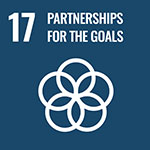
Supporting Denmark in delivering a 70% reduction in greenhouse gases by 2030 Through Aalborg Portland, the Group is involved in the most ambitious CO2 reduction project sponsored by a government. Aalborg Portland is leading the technical group that will provide to the Danish government the technical forecast of all potential CO2 reductions achievable by energy intensive industries in Denmark and will define the prerequisites (policy, research, innovation, subsidies, etc.) for such reductions. Aalborg Portland has committed to reducing its Scope 1 emissions to maximum 600,000 tonnes by 2030. This reduction entails delivering a 73% reduction of Scope 1 emission compared to 2021 levels. -
People
UN SDGs 2030 Target Detailed description 2024 Results 
Sustainable talent management Key positions are filled internally with top-class candidates worldwide. In 2024, a Group talent review was conducted with the aim of obtaining an overview of performance trends and assessing potential readiness for advancement into higher or more complex roles. This process enabled us to identify key individuals for retention through development plans and to pinpoint key roles that need to be filled by a roster of potential successors in the short, medium, and long term, thereby ensuring business continuity. 
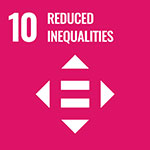
Promoting diversity in the workforce Cementir is committed to promoting diversity in the workforce. In 2021, the Group Internal Audit defined a work program for diversity, equity, and inclusion (DEI) audits. In 2024, the audits were carried out in all of the Group’s companies, with a coverage of 100% of Cementir’s workforce worldwide. The analyses highlighted that, internal operations are in line with internationally recognised diversity, equity and inclusion principles, furthermore no risks were identified during the audit activities. 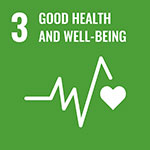
People engagement Increase engagement across the Group by listening, engaging and implementing improvement plans. In 2024 “Your Voice”, the Group People survey, achieved an overall participation rate of 92% (+4% compared to 2022). The main engagement and enablement indicators have improved by 2% compared to the last Group survey conducted in 2022. 
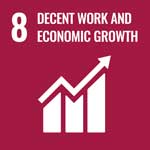
Zero accidents strategy To achieve it the Group is focusing on:
- Leadership in practice
- Commitment & Responsibility
- Risk Management
- Involvement & Participation
- Competence & Awareness
- Continuous improvement.In 2024, there were no fatalities and high-consequence injuries occurred among employees and contractors/subcontractors. 
All cement and RMC plants must operate with a certified health and safety management system (i.e. ISO 45001). The Group plans to certify all RMC plants by 2027. All cement plants are ISO 45001 certified. As of today, RMC plants are not certified ISO 45001. 
Quality Education for employees In 2018, the Group launched the Cementir Academy, a training hub that aims to develop and enhance the technical, behavioural and managerial skills of all our employees. 79,484 hours of training were provided in 2024. 
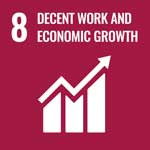
Link between employee remuneration and sustainability targets The sustainability targets defined by the Group are included in the monetary incentive plan adopted by Cementir. The remuneration of the whole C-level is strictly linked to ESG topics (e.g. Occupational Health & Safety, CO2 emissions reduction and so on), specifically these KPIs account for the 15 – 20 % of their remuneration. 

Promotion of gender equality with an objective of at least 30% of the Board of Directors being composed of women Implementation of a specific Group Diversity Policy. As of December 2024 the Board was composed for its 50% by women, outperforming the defined target. -
Local community
UN SDGs 2030 Target Detailed description 2024 Results 

Transparent communication with stakeholders In 2024, filling in the CDP Climate Change Questionnaire and Water Security Questionnaire and an assurance by the external auditors. In 2024, Cementir was awarded ‘A’ by CDP for climate change and 'A-' for water management. In 2024, a limited assurance engagement on the Sustainability Report was provided by external auditors. 
Quality Education for the local community In Turkey, the Group supports the Çimentaş Education and Health Foundation. Since it was founded, the Foundation has sponsored over 500 scholarships for secondary school and university students. Thanks to the Foundation’s financial support, the Işıkkent High School was founded. The Işıkkent High School provides education at all levels from nursery school to secondary school. 
Implementation of monitoring systems to eliminate human rights related risks across the Group A human rights self-assessment checklist, based on the Cementir Code of Ethics, UN Declaration on Human Rights, ILO Conventions and UK Slavery Act has been established and has been included in the Internal Audit process. Starting from 2020, the Internal Audit Department has verified the effective compliance of each company in the following areas: child labour, forced labour, non-discrimination, conditions of employment, security, and supply chain management. In 2022 new categories of analysis have been implemented: community relationship, customers management and diversity, equity and inclusion. In 2024, this activity was carried out in the main companies, with a coverage of 100% of the Cementir workforce worldwide, involving the following countries: Belgium, Denmark, Norway, Türkiye, United States, China, Malaysia, Egypt, Italy, France, Iceland, Australia and Poland.